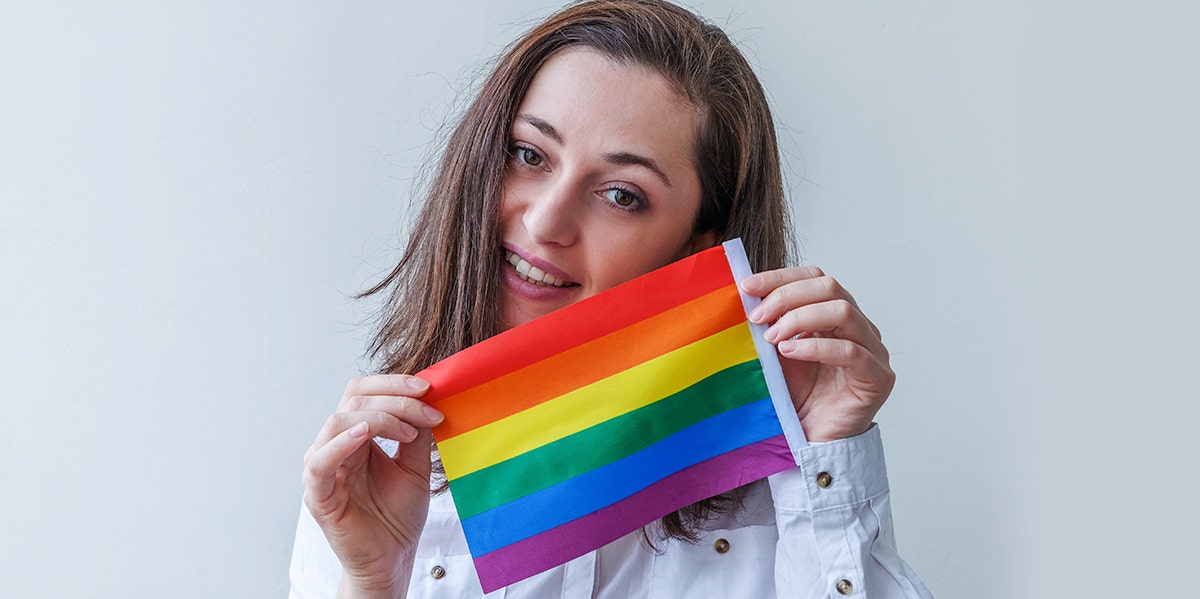Why People With Autism Are More Likely To Embrace Queer Lifestyles
People on the spectrum are more likely to identify as the LGBTQ.
 Julia Zavalishina / Shutterstock
Julia Zavalishina / Shutterstock New research out of Cambridge University’s Autism Research Center has found that there’s something different about the sexual identities of neurodivergent people.
According to their findings, adults with autism are "much more likely to identify as asexual, bisexual or homosexual than people without autism."
The survey involved polling 2,400 adults who were given options representing nonheterosexual identities including bisexual, homosexual, asexual and other.
Those with autism spectrum disorder (ASD) are as much as nine times more likely than the general population to identify as LGBTQ on the spectrum of human sexuality.
Why are people on the Autism spectrum more likely to identify as LGBTQ and less interested in heteronormativity?
While there’s no official explanation based in science just yet, it’s seems clear to many that people with autism spectrum disorder are less likely to concern themselves with social norms.
"One possibility is that people with autism are less bound by social expectations," said researcher Elizabeth Weir, "and feel more free to express their true identities."
Leon Feingold, a polyamory advocate and TED speaker who falls on the spectrum, believes that this is the right conclusion.
“Nontraditional orientations are simply more logical," he says. "At least, the consideration of them rather than simply following others’ restrictions.”
Feingold also explains that people on the spectrum are governed more by their ability to reason through an argument than by how society pushes them to feel about it.
If something doesn’t make sense, then the idea of struggling to squeeze into an ill-fitting mold just for the sake of conformity isn’t going to fly.
“The whole idea of arbitrarily and externally limiting people’s options is completely counterintuitive and illogical,” he says. “The only reason we do it is social pressure. Which is a combination of religion, tradition, and expectations we put on ourselves based on how we think others will judge us.”
We're catching up to what most people on the spectrum already know about autism and sexuality.
Dylan Kapit, a queer, trans, non-binary autistic person who’s pursuing a Ph.D. at the University of Pittsburgh and working to create sex education materials for autistic people, feels that the autistic community has known about this for a long time — and mainstream research often struggles to catch up.
“Most of the research is done by people without autism,” they say. “People doing research on race are doing much better at recognizing that parallel. We’re still very much ableist as a society so the focus is on the person with the disability struggling instead of society making space for those who are different.”
Kapit is a firm believer that novel research into neurodivergent communities often uncovers ideas that the communities themselves have already been aware of.
“It’s speculation by neurotypical people,” they say, “but it’s not speculation by the autism community. We’ve sort of always accepted this as the way we are. Neurotypical people are like let’s think about this theory, and autistic people are like ‘this is fact.’”
Kapit and Feingold are of one mind on the issue of neurodivergent people being less interested in conforming to social norms. But they suggest that the science is behind what’s already accepted fact within the population.
“Research is not there on this,” says Kapit, “but it’s widely accepted that we’re more likely to be queer and trans, because as kids we don’t know that we’re supposed to be anything other than ourselves.”
The Cambridge study joins a growing number of findings that concludes the same possibility.
It’s looking more and more like Kapit is right, and that studies by academics outside of the autistic community are only reinforcing ideas that neurodivergent people already know.
One major issue is the lack of sexual education resources for those on the spectrum.
Even though the idea that autistic people are less interested in sex was once a common theory, people on the spectrum do not differ in their sexual urges from other adults who aren’t on the spectrum.
Part of Kapit’s job is to provide resources for people who are neurodivergent to explore a healthy sexual lifestyle just like anyone else.
As of now, transition plans for high schoolers mostly cover vocational and professional training to lead to career growth outside of school.
But there’s a lot to be desired about other aspects of human life that legislation and educational services haven’t yet officially provided.
There’s already a higher reported instance of sexual abuse in autistic communities than the general population.
In light of this, it’s extremely important to ensure that all individuals on the spectrum have the tools they need to learn about healthy and appropriate physical activity, no matter the orientation they identify with.
Kevin Lankes, MFA, is an editor and author. His fiction and nonfiction have appeared in Here Comes Everyone, Pigeon Pages, Owl Hollow Press, The Huffington Post, The Riverdale Press, and more.

